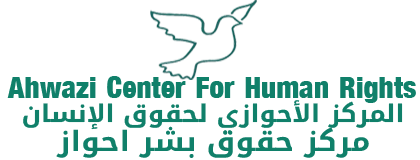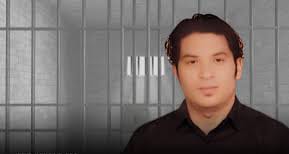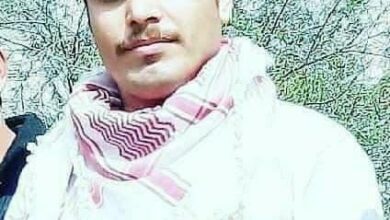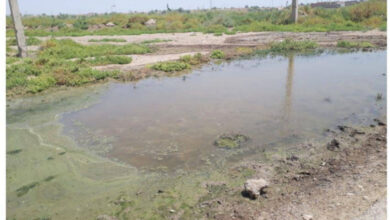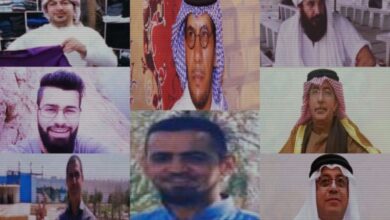Drainage of rivers and Constructions of dams killing everything in AL-Ahwaz region
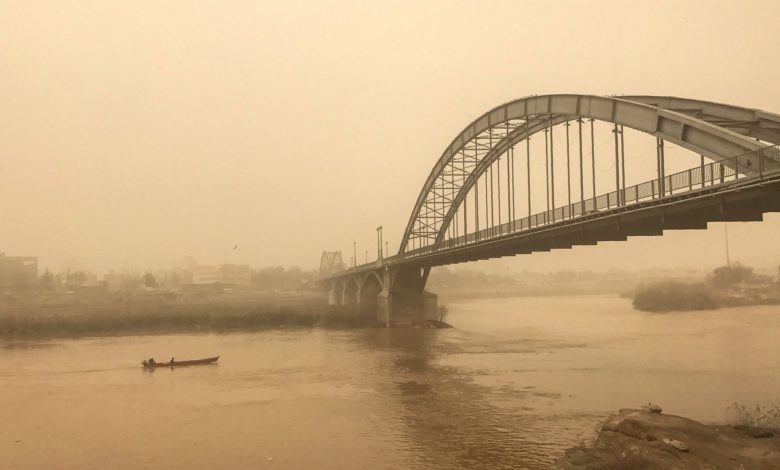
By Hossein Bouazar
Drainage of rivers and construction of dams by the Islamic Republic of Iran causes environmental pollution and the extinction of aquatic animals, birds and ultimately the death of humans.
In recent days, due to water cuts from the upper reaches of the Karun and Karkheh rivers, we have witnessed the death of fish from lack of water. In the city of Abadan.
Drying of the river in Fallahieh city (Shadegan) due to the construction of several dams upstream and the change of water route to the central regions of Iran.
Karun water transfer through Koohrang water transfer tunnels one, two and three in Karun tributaries to Zayandehrud led to the death of thousands of fish in Hur Al-azim.
According to the allocation regulations of the Ministry of Energy; The Ministry of Energy is obliged to reduce or eliminate the allocations of Koohrang 1 and 2 water transfer tunnels in case of drought, but in disbelief, it has defined several new water transfer projects in Beheshtabad, Koohrang 3, Vanak Rafsanjan, Khorsan and Bakhtiari.
The Environment Organizations had asked the Ministry of Energy to exclude Karkheh and Karun from water transfer but they have received no response from the ministry.
Water cut in Mansoureh village of Fallahieh city (Shadegan) caused a great deal of water outages in the whole region. Mansoureh village is one of the villages of Dastan Hosseini in 40 km of Fallahieh (Shadegan) city. There are 208 oil wells near Mansoureh village and this village is next to Zohreh river. The people of this village say: This village has had severe water pressure problems for the past years due to the old water transmission line and the long route, but they have been deprived of drinking water for four months and the water of this village has been completely cut off. Livestock farmers, farmers and people living near Hur Hawizeh say: We have no water, our livestock are disappearing, aquatic animals are disappearing, so where should we go?
One of the consequences of colonial policies and projects is to starve people and force them to emigrate.
Farmers in Hamidiyeh protest in front of Karkheh and Shavar Water Supply and Sewerage Company. The rally led to clashes between Arab farmers and Karkheh and Shawar employees.
The reason for the accumulation of agricultural water cuts in the fields and the destruction of farmers’ crops is due to water cuts on farmers. The diversion of water from the tributaries of the Karkheh and Karun rivers and the construction of numerous dams have caused a water crisis.
Images taken on 29th of June 2021 of the drying of the Karkheh Kor (Karkheh Noor) river in the city of Hamidiyeh due to the severe reduction of water flow and the lack of water rights in this river have increased aquatic losses.
On 3rd of July 2021, People gathered in front of the Water and Electricity Organization in the city of Ahwaz to protest the drying up of the Hawizeh (Hur al-Azim) and the dehydration and environmental pollution caused by the drying up of rivers and the construction of several dams.
Extinction of aquatic animals due to drying of Hur Hawizeh
The construction of several dams on the Karkheh and Karun rivers has caused the downstream streams, the Mansoureh and Hur Hawizeh rivers, to run out of water, causing a great deal of damage to the environment and causing the loss of aquatic life.
Hur Hawizeh or Hur Al-Azim is located 117 km west of Ahwaz. Thousands of families live near it and make a living from it.
Increase in aquatic losses in Karkheh Kor (Karkheh Al-Amiya) river in Hamidiyeh
We Ahwazi people strongly condemn the Iranian heinous crimes by deliberately diverting the rivers’ water to other cities of Iran. This is done to change the Arab demographic structure of Al-Ahwaz and calling for international aid for Ahwazis that are suffering from century phenomena made by Iranian regime. The centre calls upon humanitarian organisations and NGOs to put pressure on Iranian regime to stop its vicious policies in Al-Ahwaz and condemn it in the United Nations and other humanitarian organisations and parliaments.
We, the Ahwazi Centre for Human Rights (ACHR), concerns, while Ahwazi Arabs faced continued oppression and discrimination, the most significant human rights issues included a high number of executions for false confession and false crimes without fair trials of individuals. Torture; harsh and life-threatening prison conditions; arbitrary detention and imprisonment; of hundreds of political prisoners, are just few examples of how the Iranian regime violates the human rights, but we also should add that the regime’s handling of the Covid situation proves that the regime doesn’t care about Ahwazi lives and that raises a great concerns, and get international attention.
We are calling upon Mr. Javaid Rehman the United Nations special rapporteur for the situation of human rights in Iran and Mrs Agnes Callamard the UN special rapporteur on extraJudicial execution to intervene and stop the Iranian criminal regime from executing innocent prisoners that were arrested without any legal warrant.
Hossein Bouazar, a passionate advocate for human rights hailing from Ahwaz. With a deep-rooted connection to his people, the Ahwazi Arabs, Hossein dedicates his writings to shedding light on the challenges they face. As a vocal critic of the Iranian regime, he fearlessly exposes the human rights abuses perpetrated against the Ahwazi people. Through his poignant words, Hossein aims to raise global awareness about the injustices experienced by the Ahwazi Arabs. His writings serve as a powerful voice, challenging the status quo and advocating for a world where the fundamental rights of all individuals, regardless of their ethnicity or background, are respected and protected.
Ahwazi Centre for Human Rights
Date: 2021/07/03
